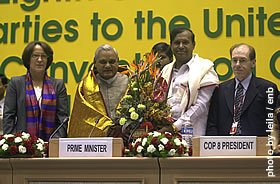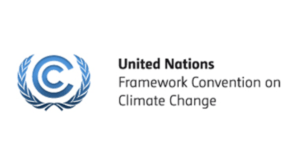COP 8: The 8th Conference of the Parties to the UNFCCC
Date and Location: Held in New Delhi, India, from 23 October to 1 November 2002.
Significance: COP 8 built upon the momentum from previous conferences, especially after the operational rules of the Kyoto Protocol were detailed in the Marrakesh Accords during COP 7. While COP 8 was not as contentious as some of its predecessors, it brought a few crucial issues to the forefront.
Key Outcomes:
Delhi Ministerial Declaration:
One of the most notable outcomes of COP 8 was the Delhi Ministerial Declaration on Climate Change and Sustainable Development. This declaration emphasized the importance of sustainable development policies to achieve the ultimate objective of the UNFCCC. The declaration also acknowledged that the developing nations’ priorities are primarily poverty eradication and economic development.
Adaptation:
Recognizing the importance of adaptation, there was an increased emphasis on activities in this area, and the needs of countries particularly vulnerable to the impacts of climate change were highlighted.
Capacity Building:
Efforts to further enhance capacity-building, particularly in developing countries, continued at COP 8. The importance of financial and technological support for these efforts was underscored.
Technology Transfer:
The conference stressed the need for greater efforts to promote the development and transfer of environmentally friendly technologies, especially to developing countries.
National Communications:
Progress on the guidelines for the preparation of national communications from Parties not included in Annex I to the Convention (mostly developing countries) was one of the technical outcomes of the conference.
Conclusion: COP 8 added value to the ongoing dialogue by underscoring the significance of sustainable development in the broader climate change discourse. The Delhi Ministerial Declaration served as a reminder of the differing priorities and responsibilities of developed and developing nations. While the conference did not result in groundbreaking decisions or negotiations like its immediate predecessors, it reinforced the collaborative spirit required for global action against climate change.
In essence, COP 8 was crucial in fostering understanding among nations and underlining the principle that while the global community has a shared responsibility to combat climate change, the capacities, responsibilities, and strategies might vary based on national circumstances and developmental stages.




